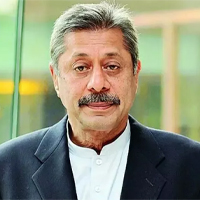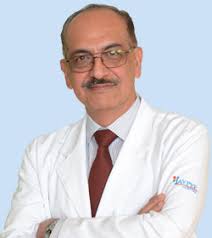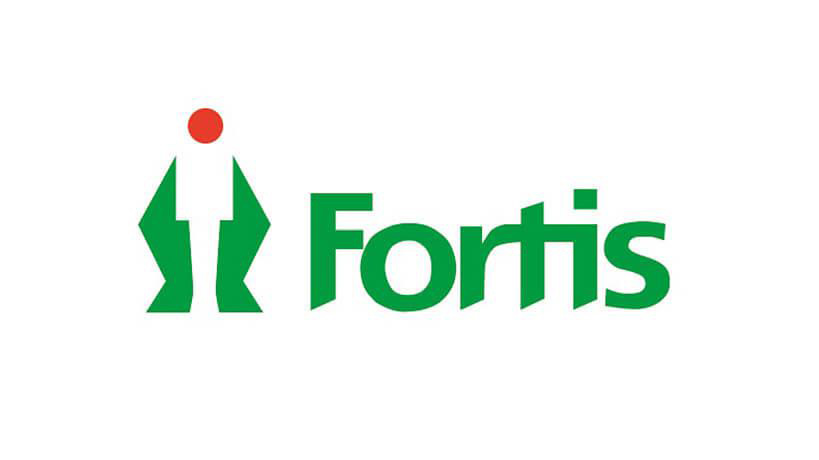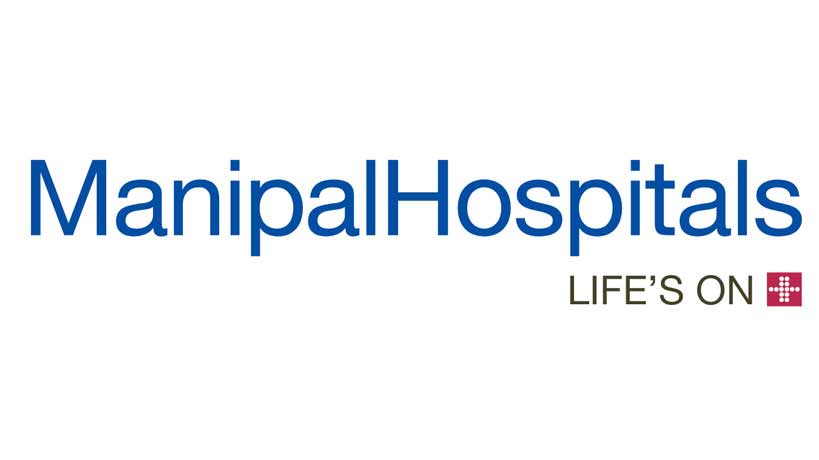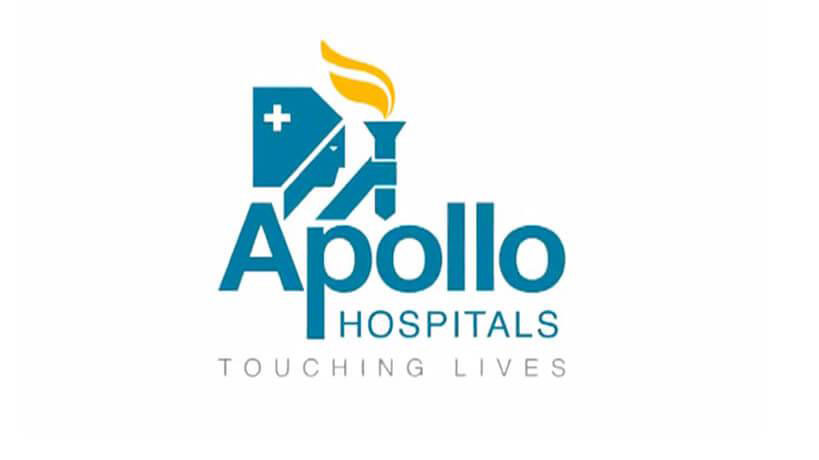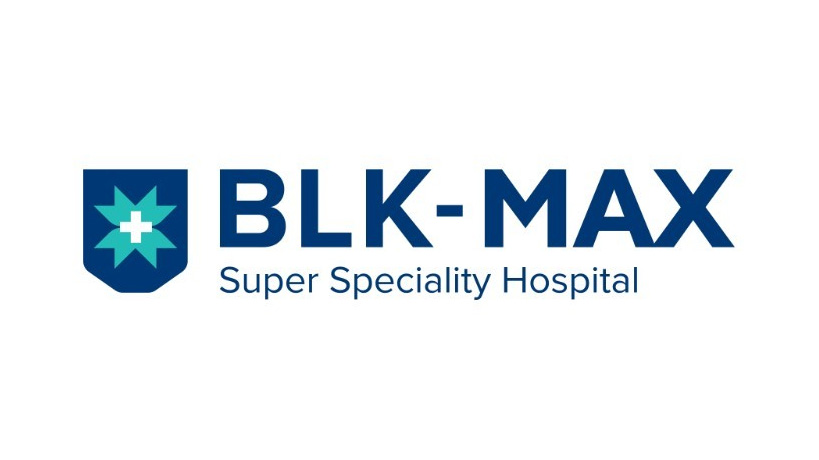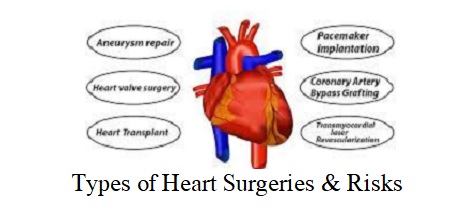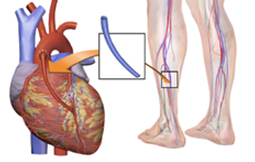
Get Free Treatment Plan From Top Hospital
Attach Medical Report
Bypass Surgery in India
Bypass surgery, also known as coronary artery bypass grafting (CABG), is a surgical procedure performed to restore blood flow to the heart when the coronary arteries become narrowed or blocked. It involves creating new pathways, called bypass grafts, to bypass the blockages and improve blood flow to the heart muscle. Heart bypass surgery cost in India, can be easily known after consulting the cardiologist about the problem and treatment.
Overview
Narrowing or blockage of the arteries, typically brought on by plaque, is known as coronary artery disease (CAD). Your heart receives blood that is high in oxygen from your coronary arteries. Plaque buildup can restrict these arteries and the blood that can reach the heart.
Consider the two methods combined due to construction. Traffic keeps flowing, just more slowly. With CAD, you may not see a problem until the plaque causes a blood clot. The blood clot is like a concrete barrier in the middle of the road. Traffic stops. Also, blood cannot reach the heart, which can lead to a heart attack.
You may have had CAD for years and have no symptoms before you have a heart attack. So it is the reason why CAD is the silent killer.
Coronary heart disease (CHD) and ischemic heart disease are additional terms for CAD. It is also what most people mean when they use the general term heart disease. Heart bypass surgery cost in India is reasonable though the quality of treatment is of high standards.
Coronary Artery Disease – Symptoms
Depending on the individual, CAD symptoms might differ, and some people may even have no symptoms at all. However, the following are some typical signs and symptoms of coronary artery disease:
The most prevalent symptom of CAD is chest pain or discomfort, which is frequently described as tightness, pressure, or squeezing in the chest. It can be mistaken for high blood pressure or dyspepsia.
Shortness of breath
If you have breathlessness during any activity or at rest, your heart muscle’s blood supply may be affected.
Fatigue
When you push yourself, your cardiac muscles may not receive enough blood and oxygen, leaving you feeling weak or weary.
Heart palpitations
Some CAD patients may experience irregular or skip-beat heartbeats.
Dizziness or light-headedness
Episodes of vertigo or fainting can be due to a reduction in blood supply to the brain.
Nauseous
Some people with CAD may feel sick to their upset stomachs or have indigestion-like symptoms. It is crucial to remember that the severity of the disease does not always correspond to the severity of the symptoms. While others may have modest blockages but experience severe symptoms, some people with major artery blockages may have little or no symptoms.
Seeking medical advice and evaluation is crucial if you think you might have coronary artery disease or are exhibiting any worrisome symptoms in order to receive the right diagnosis and care.
Type of Coronary Artery Disease
There are different types of coronary artery disease, which the location of the blockage in the arteries can determine. The four main types are occlusive disease, structural disease, restenosis, and atherosclerosis.
Occlusive Disease: Occlusive disease can occur by any accumulation of cholesterol and other debris on the inner walls of the coronary arteries. It blocks blood flow and can lead to heart attacks or strokes. Treatment typically involves removing the blockage with bypass surgery.
Structure Disease: Structure disease occurs by a narrowing or blockage of one or more coronary arteries due to plaque buildup. This type of coronary artery disease often leads to heart attacks or strokes over time. Treatment usually involves angioplasty (a procedure that uses balloons to widen narrowed arteries) or a stent (a metal frame that propels medical devices into the interior of a route).
Restenosis: Restenosis is when scar tissue forms inside a coronary artery after it has damage in a previous heart attack or stroke. It can cause future heart attacks or strokes. Treatment typically involves removing the scar tissue with bypass surgery or using medications to try to prevent restenosis from happening.
Atherosclerosis: Atherosclerosis is a long-term process that causes plaque buildup in the walls of your coronary arteries. Heart attacks and strokes may result as a result of this over time.
Types of Surgical Bypass Procedures
Coronary artery bypass graft (CABG) surgery is one of the best options for treating blood clots in the heart. CABG surgery cost in India is very reasonable, and the treatment is efficient with the help of the best cardiologists here.
Bypass surgery is a type of heart surgery that is an option to treat heart disease. In essence the procedure involves utilizing healthy blood vessels taken from another part of the body to redirect blood flow around a blocked portion of an artery. The goal is to improve the delivery of oxygen and nutrients to the heart muscle.
There are different types of bypass surgery procedures, including:
Traditional Coronary Artery Bypass Grafting (CABG): In this procedure, a surgeon makes an incision in the chest to access the heart. The surgeon then takes a segment of a healthy blood vessel from another part of the body, such as the leg or chest, and uses it to make a bypass around the blocked or narrowed coronary artery. The amount of bypass grafts needed can is determinable by the weight and placement of the block.
Off-pump Coronary Artery Bypass (OPCAB): This technique is similar to traditional CABG, but the doctor performs it without using the heart-lung bypass machine. Off-pump bypass surgery, also known as beating-heart surgery or off-pump coronary artery bypass (OPCAB), is a technique used in cardiac surgery to treat blocked or narrowed coronary arteries. In order to conduct the bypass grafts while the heart is still beating, the surgeon stabilizes the heart with unique tools.
During off-pump bypass surgery, the surgeon stabilizes a section of the heart using specialized instruments and techniques, allowing them to perform the necessary bypass grafts without stopping the heart. The surgeon typically accesses the heart through a small incision created in between the ribs or by using a thoracoscopic approach with small keyhole incisions.
The benefits of off-pump bypass surgery include:
- Reduced risk of certain complications associated with the use of a heart-lung machine, such as stroke and kidney injury.
- Recovery time is shorter than with bypass surgery.
- Potentially fewer blood transfusions.
- Lower risk of neurocognitive deficits, which can reflect as memory or cognitive problems after surgery.
Minimally Invasive Bypass Surgery (MIDCAB): A smaller incision or keyhole technique is generally the method for the minimally invasive direct coronary artery bypass (MIDCAB), which the doctor usually performs on the left side of the chest. It may not be appropriate for complex cases and is often a process for single or double-bypass grafts. Although traditional open-heart surgery is still widely used and preferred in many cases, less invasive procedures are now common methods for bypassing clogged arteries.
Keyhole bypass surgery: Patients who develop narrowed heart arteries often require surgery to bypass the narrowed arteries. Surgery is usually done through a large sternotomy. Patients often refer to this procedure as CABG, triple bypass surgery or quadruple bypass surgery depending on how many bypass grafts the surgery requires. It is a great surgery designed to make you feel better and live longer. But the problem is that the sternotomy takes three months to heal, which leads to recovery from surgery. Open heart surgery cost in India is comparatively much less than in developed countries, but performs the best treatment.
Robotic bypass surgery – Robotic bypass surgery, sometimes also referred robotic-assisted coronary artery bypass grafting (CABG), is a minimally invasive treatment that usually uses robotic technology to help the surgeon conduct coronary artery bypass grafts. This technique combines the precision and expertise of robotic technology with the skilful surgeon, resulting in fewer incisions and perhaps quicker patient recoveries. During robotic bypass surgery, the surgeon uses a console present near the operating table to control robotic arms that are highly equipped with surgical equipment and a high-definition camera. The robot moves the tool on the patient based on the hand movements of the surgeon. It enables the surgeon to move steadily and precisely, even in cramped locations. To begin with, small chest incisions are made, through which the robotic arms implant themselves with other apparatus. The surgeon will then enter the heart using the robotic device and use grafts taken from the other blood vessels in the body, such as the internal mammary artery or saphenous vein, to bypass the coronary arteries that are obstructed or constrained.
The benefits of robotic bypass surgery include the following:
- Less traumatic, less painful, and speedier recovery thanks to robotic surgery of minimally invasive technique. Robotic surgery employs smaller incisions than traditional open-heart treatments.
- Greater control and accuracy: The robotic system magnification, high-definition 3D view and increased agility providing the surgeon with the capacity to dissect and suture carefully and precisely.
- Lower probability of complications: Because robotic bypass surgery is less invasive than open-heart surgery, there may be a lower possibility of infection, bleeding, blood transfusion, and other problems.
- Shorter hospital stays: Open-heart surgery has a longer stay than patients undergoing robotic bypass surgery, and they have shorter hospital stays.
- Quicker return to regular activities: Because the technique is less intrusive than standard surgery, many patients can resume their regular activities more quickly.
Hybrid coronary revascularization – A therapy method for coronary artery disease (CAD) known as hybrid coronary revascularization combines percutaneous coronary intervention (PCI) and coronary artery bypass grafting (CABG). By integrating the benefits of both techniques, it seeks to offer the best revascularization possible. In a normal CABG, the surgeon uses a graft vessel (often an artery or vein) to bypass the blocked or constricted coronary arteries to build new blood flow pathways. A catheter with a balloon on its tip is introduced into the blocked artery during PCI, a minimally invasive technique on the other hand. A stent is inserted to keep the vessel open once the balloon has been inflated. In hybrid coronary revascularization, one or more particular blockages are first treated with a minimally invasive PCI. After that, CABG is performed to treat any remaining blockages or complicated coronary artery disease that is difficult to treat with PCI alone. Depending on the health of the specific patient and the size and location of the blockages, it is decided whether to conduct PCI or CABG first.
Hybrid coronary revascularization has the following advantages:
- Minimally invasive approach: Compared to traditional open-heart surgery, the initial PCI is carried out through a small puncture or incision, causing less trauma, less pain, and a quicker recovery.
- Targeted treatment: While CABG can address complex or diffuse illness involving several arteries, PCI permits careful targeting of specific blockages that are amenable to this technique.
- Complete revascularization: Hybrid revascularization, which combines PCI and CABG, offers all-inclusive treatment for substantial coronary artery blockages, enhancing general blood flow to the heart muscle.
- Shorter hospital stays: Compared to patients who have just classic CABG surgery, patients who get hybrid coronary revascularization may have shorter hospital stays.
The following variables may affect the selection criterion for bypass surgery:
Coronary Artery Disease (CAD) severity
When substantial blockages in many coronary arteries cannot be adequately treatable with medicine or angioplasty, bypass surgery is advised by the doctor.
Symptoms
For people with severe CAD symptoms that greatly impair their quality of life, such as severe chest discomfort (angina), or shortness of breath, bypass surgery may be an option.
Left Main Coronary Artery Disease
Since the left main coronary artery supplies a significant amount of the heart, bypass surgery is frequently advised for those who have blockages in this artery.
Failed non-surgical interventions
Bypass surgery may be an option if non-surgical approaches, such as medication or angioplasty, have failed to control symptoms or improve blood flow. Age, general health, the presence of underlying medical disorders, and the patient’s capacity to endure surgery are all taken into consideration when deciding whether to have bypass surgery.
Risk factors
There are a few factors that can increase the risks of developing CAD in people:
Hypertension or high blood pressure
High levels of (LDL), bad cholesterol or low-density lipoprotein
Having insufficient amounts of HDL, the good cholesterol
- diabetes
- obesity
- smoking
- sedentary lifestyle
- high-stress levels
- alcohol misuse
- a low-quality diet
- chronic lack of sleep
- chronic kidney disease
Some risks are not lifestyle-related, for example:
- family history of CAD
- early menopause
- increasing age
Complications
A heart attack occurs when the heart muscle does not receive enough blood or oxygen, such as when plaque in one of the coronary arteries causes a blockage.
The formation of blood clots is called coronary thrombosis. If the artery is large enough, it can stop all blood flowing from itself to the heart.
A heart attack is an emergency that can lead to death or permanent heart damage. If a person has symptoms of a heart attack it is important to call emergency services right away.
Pre-procedure
In order to analyze the patient’s general health and choose the most appropriate course of treatment, a number of tests and examinations are routinely performed before bypass surgery. The specific tests that are conducted before bypass surgery may vary based on the individual situation and the medical facility. However, the following are a few typical ones:
Angiography of the heart
In order to assess the degree and location of blockages, this procedure includes injecting a contrast dye into the coronary arteries and collecting X-ray images.
Electrocardiogram (ECG)
An ECG is a recording of the electrical activity of the heart that aids in spotting any unusual rhythms or indications of injury.
An echocardiogram employs sound waves to produce precise images of the heart’s internal anatomy and operation. It aids in determining the heart’s ability to pump blood and spots any problems with the muscles or valves of the heart.
Stress Test
During a stress test the heart’s performance and blood flow are assessed. If a patient is finding difficulty in engaging in physical activity, they may be given medicine to simulate exercise or allowed to walk on a treadmill.
Blood Tests
Blood samples are collected to examine various factors, including blood pressure, cholesterol, blood sugar, kidney and liver function, and general blood counts.
The purpose of pulmonary function tests is to evaluate the patient’s lung function and capacity in order to determine whether they can withstand general anaesthesia and surgery.
Chest X-ray
A chest X-ray is used to assess the size and health of the heart as well as any anomalies in the chest cavity.
Cardiac Catheterization
This technique involves guiding the heart with the help of a narrow tube that is a catheter and is sent into a blood artery, typically in the arm or groin. It gives specific details on the blood flow, pressures, and pumping power of the heart.
Complete medical history review and physical examination
The doctor will go through the patient’s medical background, including any previous operations, drugs, allergies, and symptoms.
Other Tests
Additional tests, such as a CT scan, blood coagulation investigations, or consultations with other specialists, may be necessary depending on the condition and risk factors of the patient.
It is crucial to remember that individual tests and assessments may differ, and your doctor will decide which ones are (absolutely) necessary based on your situation. The best course of action for individualized advice and direction regarding bypass surgery pre-procedure examinations is to speak with a healthcare practitioner.
During the procedure
The procedure involves creating new pathways for blood to bypass the blocked or narrowed arteries. Here is an overview of how bypass surgery is typically performed
Preoperative evaluation
Before the surgery, your doctor will conduct a thorough evaluation of your medical history, perform physical examinations, and may order diagnostic tests such as angiography or stress tests to assess the severity and extent of disease in the coronary artery.
Anaesthesia
Bypass surgery is performed under general anaesthesia, which means you will be asleep and pain-free during this procedure.
Incision
The surgeon makes an incision down the centre of the chest, typically through the breastbone (sternum). In some cases, minimally invasive techniques may be used, which involve smaller incisions and specialized instruments.
Accessing the heart
The surgeon then opens the chest to access the heart and temporarily stops the heart’s beating by using a heart-lung bypass machine. This machine takes over the function of the heart and lungs, allowing the surgeon to work on a still and bloodless field.
Harvesting grafts
Typically, the surgeon will use healthy blood vessels from other parts of your body, such as the chest wall, leg, or arm, to create bypass grafts. These vessels are carefully removed and prepared for use as bypass grafts.
Creating bypass grafts
The surgeon attaches one end of the graft to the aorta (the main artery leaving the heart) and the other end to a location below the blocked or narrowed coronary artery, effectively diverting blood around the blockage. Multiple bypass grafts are administered depending on the number of affected coronary arteries.
Restarting the heart
After completing the grafts, the surgeon restores blood flow to the heart by restarting the heart’s beating. In a few cases, the heart may spontaneously start beating again; otherwise, the surgeon will use an electrical shock to restore the heart’s rhythm.
Closing the chest
Once the heart functions normally, the surgeon closes the chest using sutures or staples and may place temporary drainage tubes to drain any fluid accumulation around the heart.
Postoperative care:
After the surgery, you will be in close monitoring in the intensive care unit (ICU) for a few days. You can expect to stay in the hospital for about a week, although this may vary depending on individual circumstances. Pain medication, antibiotics, and other necessary medications will be administered as required. After discharge, you’ll be given instructions on wound care, medication management, dietary restrictions, and follow-up appointments. It is important to note that bypass surgery is a major procedure, and recovery times can vary from person to person. Physical therapy and breathing exercises are typically initiated early to aid in recovery. Your doctor will provide specific guidance and recommendations based on your situation.
After-procedure
After having bypass surgery, also known as coronary artery bypass graft (CABG) surgery, it is critical to follow the post-procedure care instructions to ensure a speedy recovery. Here are some suggestions for post-bypass surgery aftercare:
- Hospital Stay: Following surgery, you will normally stay in the hospital for three to seven days. Healthcare specialists will keep a careful eye on your condition during this period, manage your pain, and administer any required drugs.
- Incision Care: Take care of the incision site by keeping it clean and dry. Follow the instructions given by the surgeon regarding changing dressings and showering. Report any signs of infection, such as increased redness, swelling, drainage, or fever, to your healthcare team.
- Medications: Take all prescribed medications as instructed by your doctor. They may include pain relievers, antibiotics (if needed), blood thinners, and medications for managing blood pressure, cholesterol, and other underlying conditions.
- Physical Activity: Gradually increase physical activity levels as recommended by your healthcare team. Initially, you may be advised to engage in light activities like walking short distances. Over time, you can gradually increase the duration and intensity of exercise as tolerated.
- Diet and Nutrition: Follow a heart-healthy diet low in saturated fats, cholesterol, and salt. Eat all fruits, vegetables, whole grains, lean protein and healthy fats. Your healthcare team or a registered dietitian can provide specific dietary recommendations tailored to your needs.
- Quit Smoking: If you smoke, quitting is essential for your overall health and recovery. Talk to your healthcare provider about strategies and support to help you quit smoking.
- Wound and Chest Pain: It is normal to experience some discomfort and chest pain during the early stages of recovery. However, if you have severe chest pain, worsening wound pain, or symptoms like shortness of breath, dizziness, or palpitations, seek medical attention immediately.
- Follow-up Appointments: Attend all scheduled follow-up appointments with your surgeon and healthcare team. These visits are crucial for monitoring your progress, adjusting medications if necessary, and addressing any concerns or questions you may have.
Remember, every individual’s recovery is unique, and it’s important to follow your doctor’s specific instructions for post-care after bypass surgery. These guidelines provide a general overview, but your healthcare team will provide personalized advice based on your condition and needs.
Bypass Surgery Doctors in India
Bypass surgery is a critical and significant surgery for any patient, young or aged. Cardiologists in India performing bypass surgeries are highly skilled in dealing with sensitive cases of all heart defects. Al-Afiya Medi Tour offers assistance to both national and international patients seeking to connect with bypass surgeons and doctors in India. The doctors in India are well-trained in performing surgeries and medicinal treatments. If patients or attendees require information about any doctor, they can consult the Al-Afiya team free of charge. Cardiologists or doctors in India will assist the patient in planning an appropriate treatment to help them recover and return to their regular life. Listed below are a few bypass surgeons in India –
- Dr. Amit Mittal, Apollo Hospital, Delhi
- Dr. Umesh Gupta, Manipal Hospital, Delhi
- Dr. Rajeev Rathi, Max Speciality Hospital, Delhi
- Dr. Yugal K Mishra, Manipal Hospital, Delhi
- Dr. Parneesh Arora, Jaypee Hospital, Delhi
- Dr. Naresh Trehan, Medanta Hospital Gurgaon, Delhi
- Dr. Ramji Mehrotra, BLK-max super speciality hospital, New Delhi
- Dr. Naveen Bhamri, Max Super Speciality Hospital, Delhi
- Dr. Rajeev Kumar Rajput, Indraprastha Apollo Hospitals Delhi
- Dr. Aseem Dhall, Saroj Super Speciality Hospital, Delhi
- Dr. Subhash Chandra, Max Super Speciality Hospital, Delhi
- Dr. Ganesh Kumar Mani, Max Super Speciality Hospital, Delhi
- Dr. Z S Meharwal, Fortis Escorts heart institute, Okhla, Delhi
Bypass Surgery Hospitals in India
Finding the right hospital is crucial for receiving high-quality treatment. In India, hospitals are equipped with the latest medical technology and use advanced methods to care for patients with precision and compassion. Al-Afiya is connected with several top hospitals in India, offering useful information and assistance to national and international patients. These hospitals provide standard treatment in a comfortable environment, allowing patients to recover and return to their normal lives. The patients can receive comprehensive treatment and support with dedicated staff and healthcare professionals available 24/7. Hospitals are located throughout the country, making it convenient for patients to access medical care from their preferred location. Below are a few hospitals in India performing bypass surgery
- Fortis Escorts Heart Institute, New Delhi
- Indraprastha Apollo Hospital, New Delhi
- BLK Super Speciality Hospital, New Delhi
- Max Super Speciality Hospital, Saket, New Delhi
- Manipal Hospitals Dwarka, Delhi
- Fortis Hospital, Shalimar Bagh, New Delhi
- Sir Ganga Ram Hospital, New Delhi
- Moolchand Medcity, Lajpat Nagar
- Medanta-The-Medicity, Delhi
- Artemis Hospitals, Gurgaon
- Marengo Asia Hospitals, Delhi
- Medanta Mediclinic, Delhi
- Kailash Hospital & Heart Institute, Noida
- Apollo Hospital, Hyderabad
Cost of a bypass in India
Depending on the location and type of surgery, open-heart surgery in India can cost different in different places. There is no universally applicable heart bypass surgery cost in India, but one thing is for sure the treatment quality is never compromised. For help regarding the CABG cost in India, do connect with the Al-Afiya team to get benefits. The cost of a bypass operation in India varies depending on where you live, but it typically costs between Rs. 25 lakhs and Rs.50 lakhs. The bypass surgery cost in India may change based on the location, the facility, and other elements. The majority of hospitals in India do, however, give people discounts, especially those who are recommended by physicians. CABG surgery cost in India procedure typically costs between 60,000 and 70,000 rupees.
Additionally, insurance providers in India frequently pay all or the majority of the costs related to heart surgery, making it significantly more accessible to patients.
- Heart bypass surgery cost in India can be INR 95,000 to INR 3,50,000.
Depending on different cities, the heart surgery cost in India can be
Ahmedabad Rs.165133 to Rs.210000
Bengaluru Rs.258455 to Rs.351000
Chennai Rs.216167 to Rs.300000
Faridabad Rs.220000 to Rs.230000
Ghaziabad Rs.182500 to Rs.185000
Gurgaon Rs.227500 to Rs.260000
Hyderabad Rs.241093 to Rs.323000
Jaipur Rs.161219 to Rs.170000
Kolkata Rs.207571 to Rs.350000
Mumbai Rs.257117 to Rs.400000
New Delhi Rs.238987 to Rs.355000
Pune Rs.271714 to Rs.385000

Finding a specialist in bypass surgery in India, whether for a patient from another country or for an Indian person themselves, is not a simple task. If you live in India and are looking for the most qualified Peripheral Bypass Surgery doctor for your treatment, then the medical professionals at our company are prepared to assist you. They provide you all of the information you need to know about the specialists in their field. You can make an appointment online with any of the following top bypass surgery doctors in India: Delhi, Gurgaon, Noida, Faridabad, Chennai, or Mumbai. Each doctor’s profile includes information on the doctor’s experience, fees, contact number, and hospital affiliation, among other relevant information.

Suppose you are considering having bypass surgery in India and are looking for the most reputable bypass surgery facility in India. In that case, you should not be concerned about finding one. You can count on Al Alfiya Medi Tour to be there to assist you. Our company has a staff comprised of knowledgeable healthcare specialists. They will assist you in locating the medical facility in India that is considered the finest for bypass surgery. You can select any leading Heart Bypass Surgery facility in any major Indian city, such as Delhi, Gurgaon, Faridabad, Noida, Chennai, or Mumbai. The following is a list of hospitals that bypass surgery in India’s most important cities, including Delhi, Gurgaon, Mumbai, Noida, and Faridabad, along with detailed information about each facility, including its location, telephone number, city, and roster of top physicians. You may now schedule an appointment with any hospital using their own websites.
Book An Appointment for Bypass Surgery

Get Free Treatment Plan From Top Hospital
Attach Medical Report

Because medical care in India is so much more reasonably priced than in most other nations, India has emerged as a leading destination for patients from all over the world to get treatment. Suppose you are considering having bypass surgery done in India. In that case, you should be aware of how much it would cost you to have bypass surgery done in India. In India, the bypass surgery cost in India or surgery may vary widely from one hospital to another, as well as from one location to another, and it also is contingent on the doctor’s charge. Get in touch with us at any time, day or night, 365 days a year, if you are interested in finding out how much the Bypass Surgery procedure costs in India. You will get assistance from our healthcare specialists. In India, the price range for coronary bypass surgery is around 95,000 to 450,000 rupees (US$1,500 to $1,500).

After surgery, the majority of patients see an improvement in their symptoms and continue to feel better for anywhere from ten to fifteen years. However, as time passes, there is a chance that other arteries, or even the new graft that was utilized in the bypass, would get blocked, necessitating either a second bypass procedure or an angioplasty.
Taking your prescribed drugs to treat diabetes, blood pressure, and cholesterol, as well as prevent blood clots and decrease blood pressure, will be an important factor in determining the outcomes and the long-term prognosis of this treatment. It is also essential to adhere to the suggestions for a healthy lifestyle, which include the following:
- Stop smoking.
- Adhere to a nutritious eating plan, like the DASH diet, for example.
- Obtain and continue to maintain a healthy weight.
- Exercise frequently.
Take care of your tension.
Contact Form
Attach Medical Report
FAQs (FAQs (Frequently Asked Questions))

What is Bypass Surgery?
Bypass surgery, also known as coronary artery bypass surgery, is performed to treat coronary artery disease and clear plaques that build in heart arteries. It helps to increase life expectancy and slow the progression of CAD and chest pain.
What is robotic Bypass Surgery?
Robotic bypass surgery refers to heart surgery done with robot-controlled tools through various small incisions instead of large incisions. This helps to prevent excessive blood loss.
What are the types of Bypass Surgery?
There are two types of bypass surgery.
- On-Pump Surgery: This procedure requires the surgeon to open the chest bone and stop the heart, placing a heart-lung machine.
- Off-Pump Surgery: This is a minimal access method that eliminates the requirement of stopping the heart. The surgery will be performed on the beating heart.
How much time will it take for Bypass Surgery in India?
Bypass surgery usually takes 3-4 hours to be completed. However, the time usually depends on the severity and other factors associated with surgery.
Who can get Bypass Surgery in India?
People having coronary artery disease can get bypass surgery. Moreover, individuals who experience plaque buildup in three parts of heart arteries can also get bypass surgery. However, if you have blood vessel disease or heart valve disease, bypass surgery should not be recommended.
What are the precautions after Bypass Surgery in India?
The doctor may advise to do breathing exercises and spirometry for 4-6 weeks as recommended by doctors. This helps to prevent lung infection and maintain a healthy body weight. Furthermore, doctors suggest eating a healthy diet and light exercises.
What is the Bypass Surgery success rate in India?
The bypass surgery success rate in India is 98%. However, the success rate depends on the patient’s condition.
What is the Bypass Surgery cost in India?
The Bypass surgery cost in India ranges from INR 95000 to INR 4,50,000. However, the exact cost of bypass surgery depends on the hospital you have chosen, medical facilities, and other factors.
What is robotic surgery cost in India?
The robotic surgery cost in India ranges from INR 2,50,000 to INR 6,75,000 and even more.
What are the top 10 best Bypass Surgery hospitals in India?
The top 10 best bypass surgery hospitals in India are as follows:
- Max Super Speciality Hospital, Saket, New Delhi
- Indraprastha Apollo Hospital New Delhi.
- Fortis Hospital Gurgaon
- Kokilaben Dhirubhai Ambani Hospital Mumbai.
- Nanavati Super Specialty Hospital, Mumbai.
- Medanta – The Medicity Hospital, Gurgaon.
- Jaypee Hospital, Noida
- Narayana Multispecialty Hospital, Bangalore
- Wockhardt Hospitals, Mumbai Central
- MIOT Hospitals, Chennai
What are the top 10 best Bypass Surgery surgeons in India?
The top 10 best bypass surgery surgeons in India are as follows:
- Dr Devi Prasad Shetty. MS, FRCS- Cardiac Surgeon. …
- Naresh Trehan, cardiac surgeon
- Ramakanta Panda. Vice Chairman & Managing Director. Chief Consultant for Cardiovascular Thoracic Surgery.
- Yugal K Mishra, Cardiac Surgeon
- Akhil Govil, Vascular Cardiac Surgeon
- Z. S. Meharwal, Cardiac Surgeon
- Dr (Col) Kumud Rai. MS- Principal Vascular Surgeon
- Dr Sandeep Attawar, cardiac surgeon
- Dr Mukesh Goel, Cardiac Surgeon, Apollo Hospital
- Dr Krishna S Iyer, Cardiac Surgeon, Fortis Escort Hospital
How can I apply or get or book an appointment for Bypass Surgery in India?
If you want to book an appointment for Bypass surgery, visit alafiyameditour.com. Here, you can easily find the top bypass surgery surgeon in India. To book your appointment, use live chat support and enter all your requirements. Based on input, we will provide you top recommended hospitals and surgeons for bypass surgery. Moreover, you can use video conferencing for instant connection with top bypass surgeons.
Top Doctors & Surgeons in India
Why Choose Us

Personalized Care
24x7 Supports
Top NABH and JCI accredited Hospitals
Free Cost Estimation & Medical Opinion from Specialist
Get Free Tele/Video Consultation
Visa and Traveling Assistance
Post-surgery with Assistance in Follow-ups


